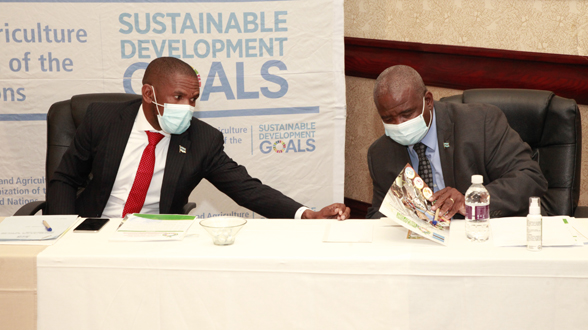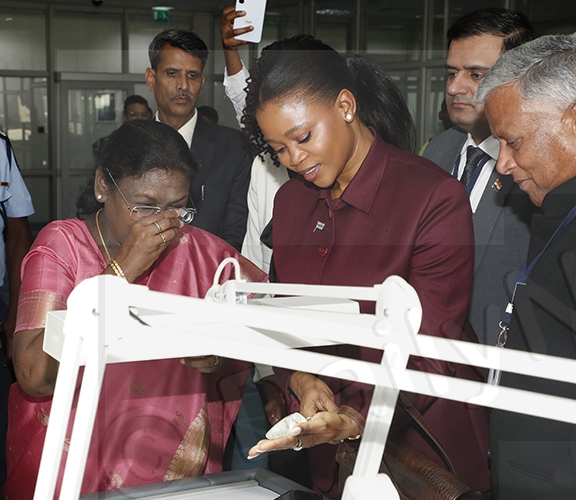Sustainable food systems critical
15 Aug 2021
Sustainable food systems are critical for the attainment of key development goals such as food security, nutrition and a healthy population.
This was said by the Minister of Agricultural Development and Food Security, Mr Karabo Gare, at the Botswana national dialogue on the 2021 United Nations Food systems launch in Gaborone on Thursday.
Mr Gare said the food system of any country was a critical cross cutting pillar that encompassed processes such as production, marketing, distribution, processing, retailing and consumption.
He said the series of national dialogues concerning food systems in Botswana would raise awareness and public discussions on food systems that could assist the country to achieve the Sustainable Development Goals (SDGs), including learning and sharing information from other countries and stakeholders.
“Moreover, the dialogues aim to develop in-country led solutions and advance tangible actions and progress towards the 2030 agenda for sustainable development,” he stated. Mr Gare said the dialogues would also form a build-up to the United Nations (UN) Food systems summit, which was designed around promoting the achievement of the UN Agenda 2030 on SDGs and the UN Decade of Action agenda 2016-2025.
He said the dialogues were centred on five goals of ensuring access to safe and nutritious food; boosting nature positive production; advanced equitable livelihoods; shifting towards sustainable consumption patterns and building resilience to vulnerabilities, shocks and stresses, meant to guide and direct the country in shaping its food system.
The dialogues, he added, would include constitution of technical working teams consisting of individuals from across government ministries, parastatals, private sector, civil society groups, NGOs and research and education institutions; to facilitate the entire process from start to finish.
Mr Gare expressed hope that the national dialogues would culminate in ground-breaking truths and pathways that would lead to improvement in the country’s food systems and positively contribute to a global sustainable food system that assures the achievement of SGDs by 2030.
Meanwhile, UN Food Agricultural Organisation (FAO) representative, Ms Lesedi Modo stated that finding pragmatic solutions to specific challenges in the food system required a clear understanding of the problem, available problem solving options and political commitment to take action.
She said having a range of diverse views and involvement would better assist with best ways to make food systems strong and more equitable in Botswana, hence the importance of both district and national food system dialogues.
Ms Modo further expressed that the COVID-19 pandemic had also exposed dangerous deficiencies in the global food systems, which actively threatened the livelihoods of people around the world, particularly the most vulnerable.
“Even before the onset of the current crisis, the evidence for the need of transformation had never been clearer,” she said.
She said food systems were in many cases, part of the problem, but there was scientific consensus that transforming food systems was one of the most powerful ways to change course, realise the vision of the 2030 Agenda and support the UN Secretary-General’s call to build back better from COVID-19.
Ms Modo said the UN would continue to strengthen collaboration among its different agencies and with other stakeholders to ensure a coordinated effort on addressing the risks faced by food systems, whilst putting then onto a sustainable path. ends
Source : BOPA
Author : Taboka Ngwako
Location : GABORONE
Event : Launch
Date : 15 Aug 2021






